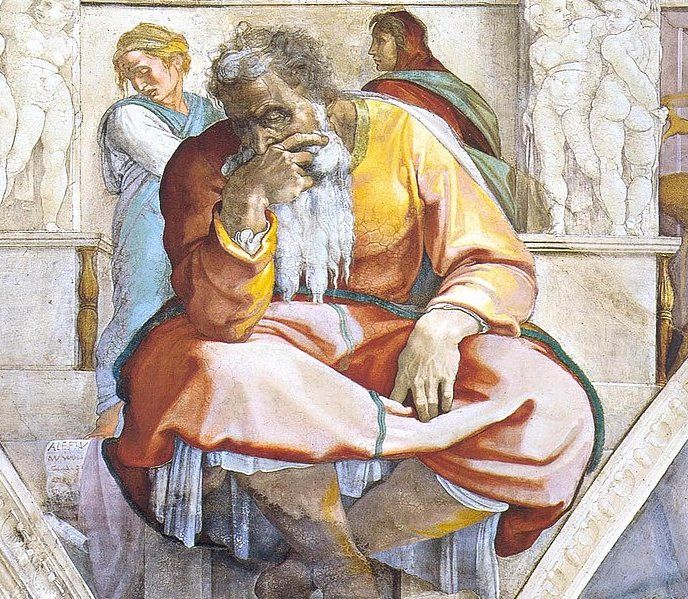Jeremiah: The Temple Sermon
Prayer of Preparation
Lord, make me an instrument of your peace:
where there is hatred, let me sow love;
where there is injury, pardon;
where there is doubt, faith;
where there is despair, hope;
where there is darkness, light;
where there is sadness, joy.
O divine Master, grant that I may not so much seek
to be consoled as to console,
to be understood as to understand,
to be loved as to love.
For it is in giving that we receive,
it is in pardoning that we are pardoned,
and it is in dying that we are born to eternal life.
-St. Francis of Assisi

Sunday Scriptures from the Narrative Lectionary
This Sunday we begin a six-week series on the book of Jeremiah. This is the second largest book in the Bible (second to Psalms). It records Jeremiah's prophetic career during critical times in Israel's history.
The people of biblical Israel were chosen to be a light to the world. Abraham first received word of this all the way back in Genesis. Over and over again across the Old Testament God calls the people of Israel to very specific things. God calls God's people to the love of God and neighbor, manifested by worship of only one God (YHWH) and by caring for all neighbors, but particularly those who were vulnerable (widows, orphans, the poor, immigrants and refugees, children, etc.). The people as a whole were not obedient. The rich oppressed the poor. Those who had power grabbed the land of those who had less power. Those in need were overlooked. And apostacy was common. Verses 9-11 of Jeremiah Chapter 7 sum up what was going on. The people were acting horribly against God and neighbor during the week, and then coming to the Temple for worship and thinking that they were safe from the judgement of God. As soon becomes clear, they were not safe from judgement. Judgement comes with terrible destruction.
But we aren't to destruction quite yet.
In 622 BCE, King Josiah tries to undertake massive reforms among the people. These are the most far reaching reforms of Israel's history, but the effects are not lasting. Josiah eliminated all worship of false idols and gods, and tears down all shrines outside of Jerusalem. During his kingship the Assyrian Empire declines and there is conflict between Egypt and Babylon for control of the Fertile Crescent. Babylon takes hold.
Josiah is killed in 609. There are a series of kings who follow him. Tensions with Babylon increase as their violent presence becomes increasingly difficult to deal with. In 594 there is a planned revolt and within five years open rebellion. Babylon responds decisively with a siege on Jerusalem. The Temple is destroyed. Many leaders are executed. Many people are taken into exile.
Some Judeans are left in Jerusalem, including Jeremiah. He counsels the others to remain there, but in fear they flee and forcibly take Jeremiah and his scribe Baruch to Egypt with them. His last sermon (in chapter 44) is one against the Judean refugees in Egypt.
The book of Jeremiah has some tremendously difficult words about punishment for disobedience. But it is also a book of hope. What God longs for is for people to receive the salvation that God offers and to want to live a life of love of God and neighbor. Again and again, God tries to reach the people to help them understand that it is only when they want to live a life of obedience - not because they have to, but because they long to - that they will find flourishing - a flourishing for their neighbor as well as for them.
May God grant us eyes and ears to understand.
Blessings on your preparation for worship! If you're interested in joining us in person for worship, find out details here.
To join us virtually on Sunday morning at 10am, use this YouTube link.
All are welcome!
Works Cited: